I’ve always been told that you should never tow a trailer without turning overdrive off first. If you ask online, you’re likely to get the same answer. Recently, I was bored out of my mind in the Canadian Prairies and decided to do a little test to see how it affects fuel economy.
Typically, you should disengage overdrive when towing a trailer. This is due to the heat that can be created with overdrive on – both from the vehicle trying to hunt back and forth between gears and from the engine RPMs not being high enough to cool the transmission.
While traveling across the country, I became curious though. There were plenty of times when it was very clear that my 4runner did not want me towing in overdrive. It would hunt in and out of 4th and 5th gear, bog down without downshifting, and a lot of the time it would save itself from my stupidity by keeping itself out of overdrive whether I wanted it to or not.
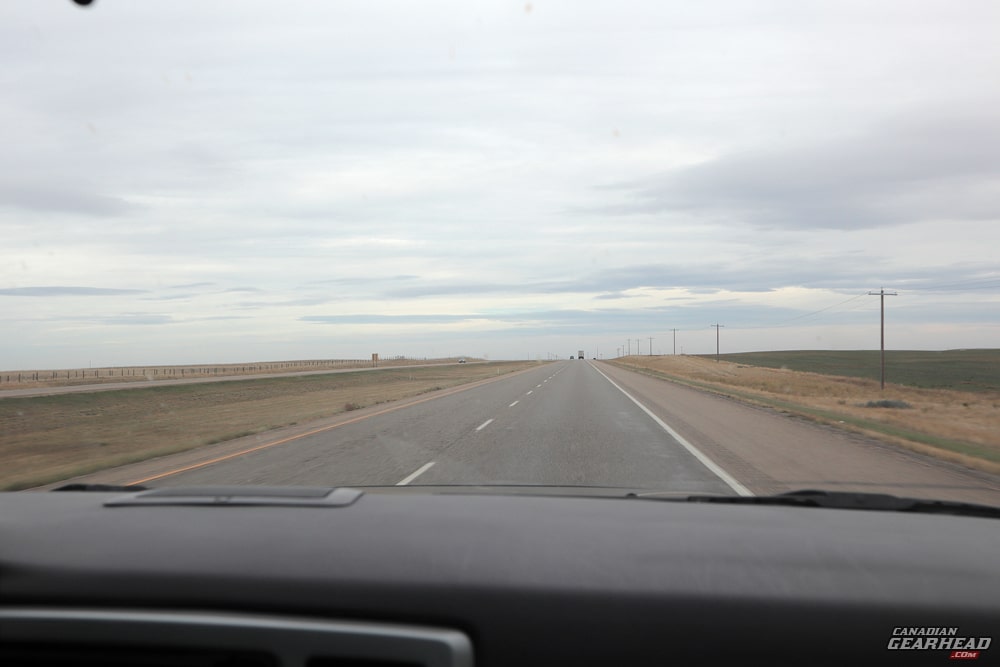
So in the Rocky Mountains, overdrive was certainly not a good idea. But what about when driving in the Prairies (which are so straight and flat, you can practically drive for an hour without touching the steering wheel).
Theoretically, leaving the truck out of overdrive will cause the RPMs to be higher which will, in turn, hurt your fuel economy. So is the decrease in MPG worth the added safety of the transmission?
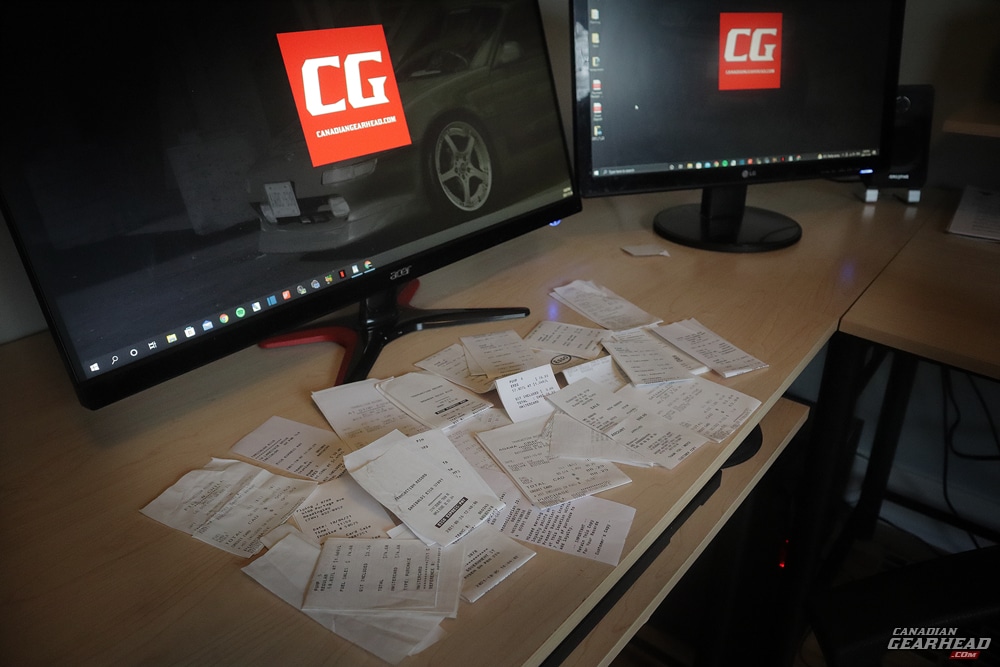
Do you get better MPG when towing with overdrive on?
In order to get to the bottom of this, I had to run a fuel economy test. We were on our way home from our honeymoon in British Columbia, pulling a 3,200 lb camper trailer with my V8 4runner. I logged my fuel fill-ups for a few different scenarios:
Towing with overdrive on/off at 100 kmh
Towing with overdrive on/off at 120 kmh
These were done back to back on a long stretch of highway on the same day in the same weather conditions. I calculated my fuel economy by hand based on the actual odometer reading and not the function in the dash.
Check out the data from my test:
| Distance | Gas Consumption | Fuel Economy | |
|---|---|---|---|
| Maple Creek – Moose Jaw Overdrive: ON Speed: 120 KPH (75 MPH) | 298.5 Kilometers 186 Miles | 67 Liters 17.7 Gallons | 22L/100km 10.5 MPG |
| Moose Jaw – Whitewood Overdrive: OFF Speed: 120 KPH (75 MPH) | 240.5 Kilometers 149 Miles | 62.5 Liters 16.5 Gallons | 26L/100km 9 MPG |
| Portage la Prairie – Richer Overdrive: ON Speed: 100 KPH (62 MPH) | 81.9 Kilometers 51 Miles | 19 Liters 5.1 Gallons | 23.5L/100km 10 MPG |
| Richer – Whiteshell Overdrive: OFF Speed: 100 KPH (62 MPH) | 97.4 Kilometers 61 Miles | 24 Liters 6.3 Gallons | 24.2L/100km 9.7 MPG |
As you can see, I stumbled upon a very interesting factor – the speed you’re going makes all the difference in whether keeping overdrive off will help your fuel economy or not. When traveling at 75 MPH, using overdrive will gain you 1.5 MPG! That could really add up to some fuel savings on a long trip.
What’s really surprising is the fact that my 4runner got the same fuel economy at 62 MPH when overdrive was both on and off. So if there’s any chance that towing with overdrive on could cause damage or wear, you’re not gaining any MPG improvements to justify taking that risk.
This shows us that the most important thing is testing. Every vehicle is different and this is really the only way to know if you have anything to gain by towing with overdrive on.
In my case, there’s no reason for me to leave overdrive on when driving 62 MPH. Turning it off confirms that I won’t have to worry about excessive wear, and it won’t cost me any extra gas money.

What if it’s not hunting for a gear – is towing with OD on still bad?
The biggest threat when towing with overdrive on is the transmission failing from excessive heat. Is this only caused by the vehicle trying to hunt for a gear back and forth in overdrive? Not necessarily.
Towing with overdrive on can still be bad – there is another reason why your transmission can get too hot from towing in overdrive that has nothing to do with shifting back and forth between gears. It’s caused by engine RPMs that are too low.
You see, your engine needs to spin a certain amount to power the transmission pump. If your RPMs are too low from towing in overdrive at lower speeds, it isn’t able to pump enough volume through the transmission cooler to, you guessed it, keep the transmission cool.
Keeping the revs higher by towing with overdrive off will keep the pump spinning fast enough to cool the transmission efficiently.
So again, based on my test, it makes sense for me to tow in overdrive at higher speeds (as long as it’ll stay in gear). The engine is still spinning high enough to let the transmission pump do its job, and I can save 1.5 MPG.
At lower speeds, it’s not safe to tow with overdrive on. I see no gains in MPG and the RPM is too low to keep the transmission cool.
How can I improve my towing MPG?
If you’ve decided that towing with overdrive on isn’t worth the risk (or offers very little gains), there are other ways you can improve your fuel economy while towing. It really depends on the type of trailer you’re towing though – a camper or enclosed trailer is going to hurt your gas mileage no matter what you do. It’s just a matter of aerodynamics (or lack thereof).
Here are some things that can help with your MPG:
Ecu tune
Most vehicles run very rich from the factory. Optimizing the tune for your specific usage and conditions can save a lot of fuel. Diesel trucks tend to see the biggest gains from tuning.
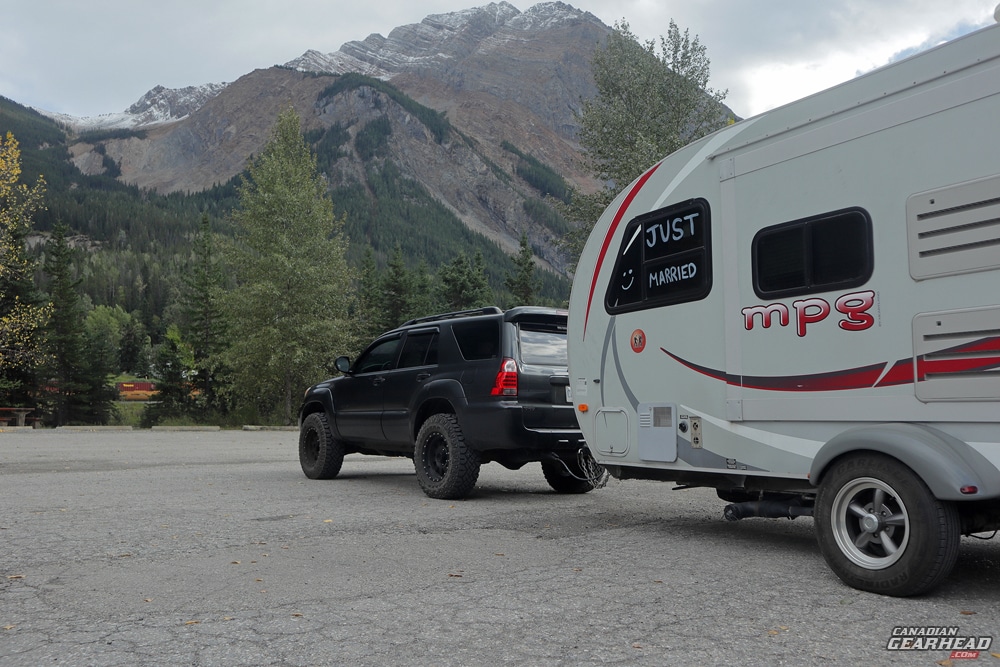
Think of your trailer tires
Not just your tire pressure (although you should pay attention – low tire pressure can kill your fuel economy! There’s more to it than that. The size and style of the tire you run can make a difference in your gas mileage.
That doesn’t stop with just your trailer tires though. If you’re planning on pulling a trailer on a long trip, you might want to leave the big mud tires at home and put your original street tires back on temporarily.
Let your engine breathe
Upgrading your intake and exhaust (especially headers) can help your engine to breathe better which in turn will increase its efficiency.
Now it might be true that a lot of the gains from something like an intake are only made at wide open throttle, but if you’re towing a heavy trailer in the mountains, it still might be worthwhile.
I’ve seen a pretty decent increase in my fuel economy since upgrading to Doug Thorley headers on my 4runner. It doesn’t hurt that they produce more power and torque right in the midrange too.
Keep the air conditioning off
On some vehicles, running the A/C will decrease your fuel economy. Others will keep the compressor running whether it’s turned on or off. This one depends on how your vehicle operates so it’s worth looking into.
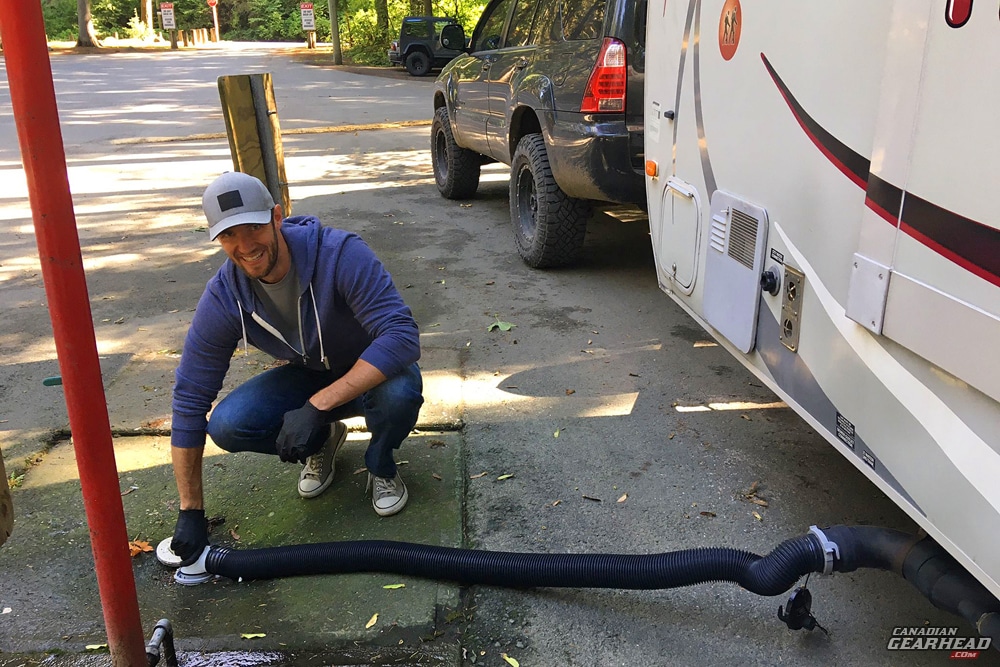
Keep the tanks on your camper empty
Don’t drive around with your fresh, grey, and black water tanks full. All of that water adds up to a lot of weight. A lighter trailer obviously requires less effort to pull, so try to fill up your water when you get to camp and dump your waste before you leave.
Adjust your driving
The most effective way to increase your MPG when towing is to make changes to your driving. Hyper miling can certainly be helpful (speeding up on downhills so you can coast uphill).
Your speed is another huge factor. As you saw in the table above, simply dropping from 75 MPH to 62 MPH can save between 0.5-1 MPG. Aerodynamics is the main reason why your rig is thirsty while towing, so slowing down will certainly help – and be safer too!

Tim is the creator of Canadian Gearhead. His experience with auto detailing and working for Toyota shows through all of the articles posted here. He runs the Canadian Gearhead site and YouTube channel full-time now and currently owns a 2007 4runner, 2006 Tacoma, and 1991 MR2. Read more about Tim:

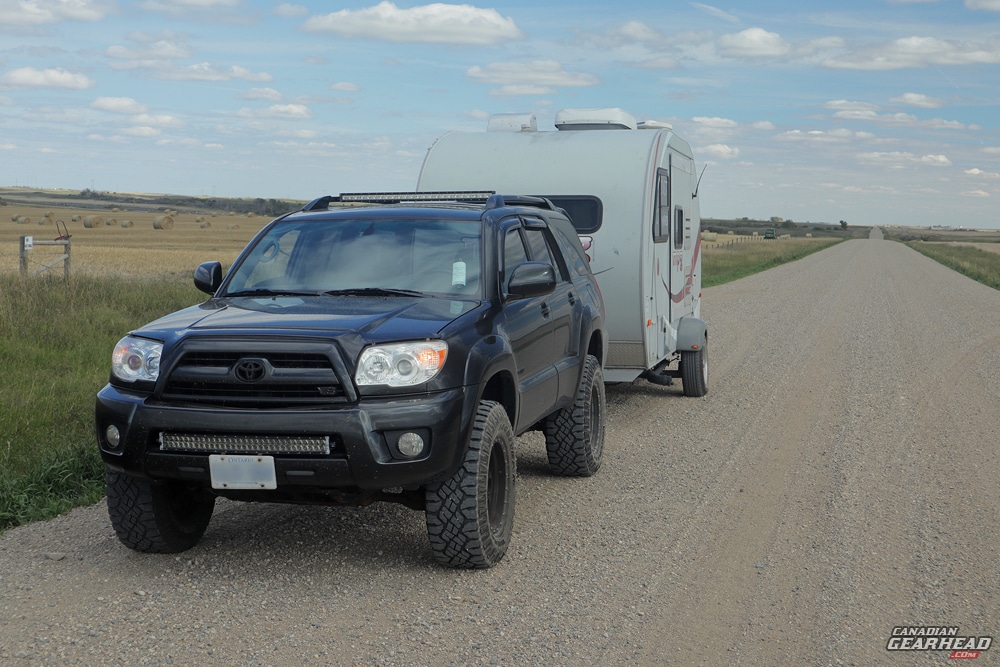
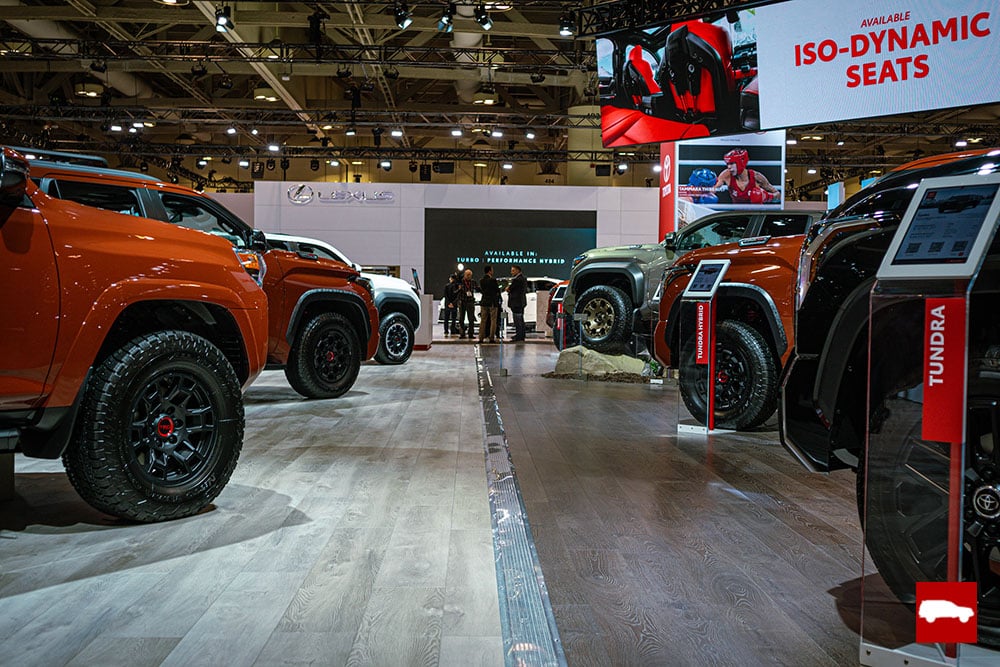
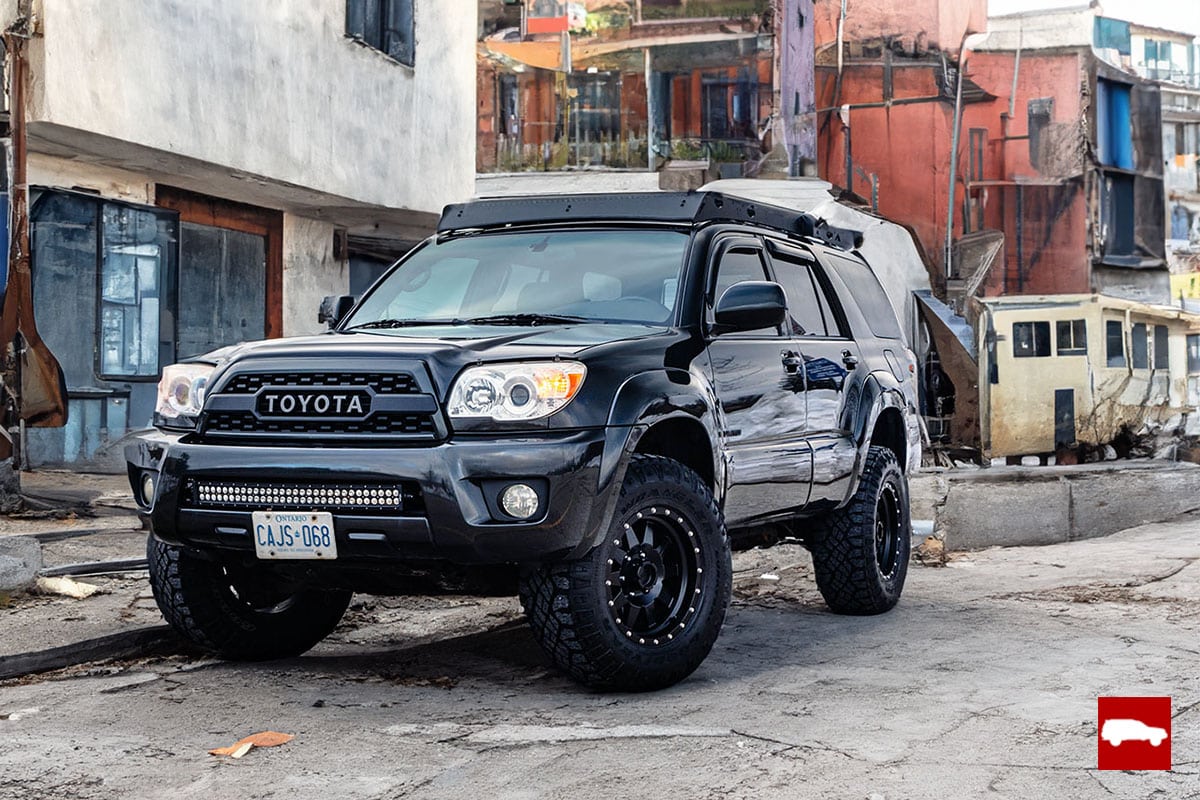
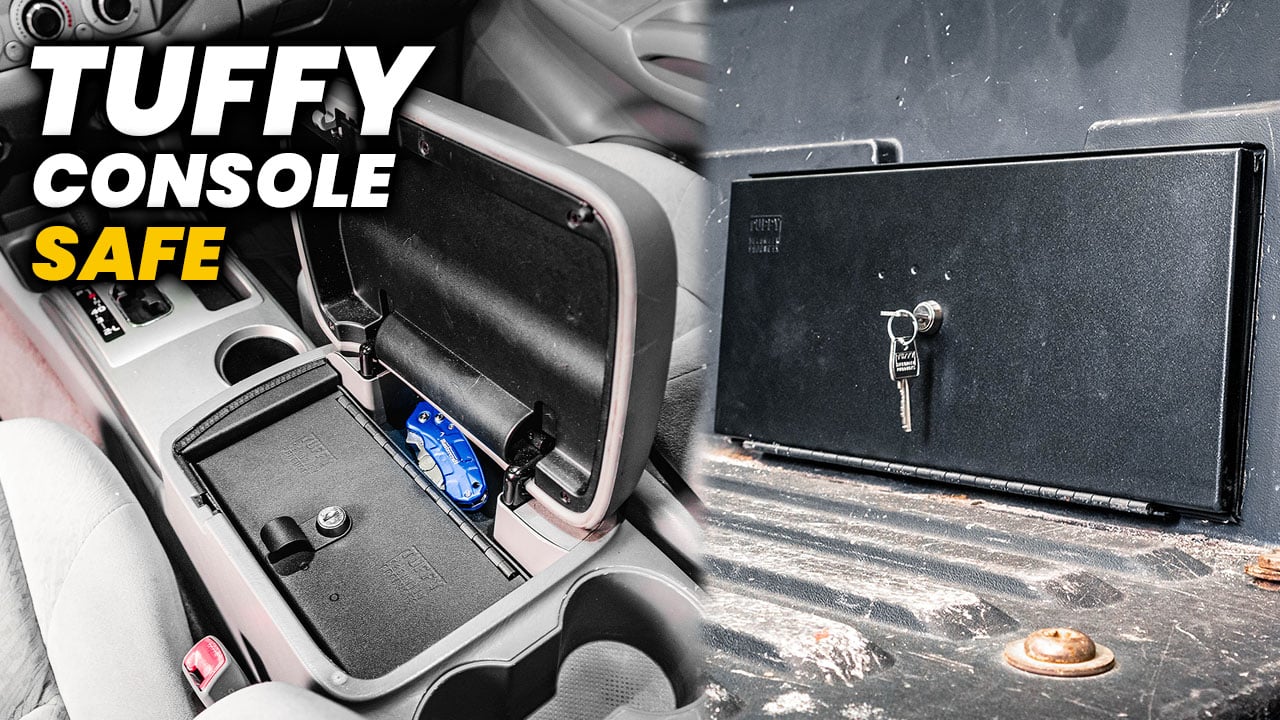
Leave a Reply